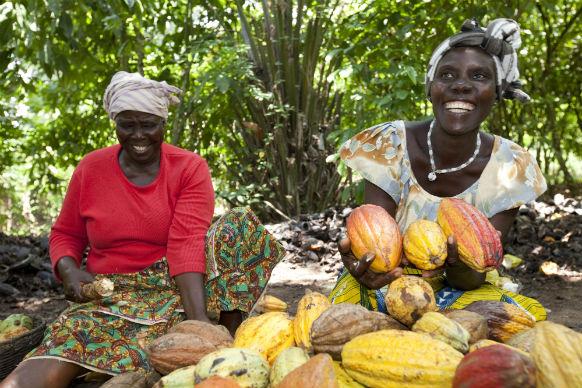Gender parity: a priority or a reality?

As the global conversation around gender parity continues, and as major strides continue to be made on this front, International Women’s Day remains an ideal platform for recognizing the contribution of the public and private sectors in women empowerment.
According to the World Economic Forum’s Global Gender Gap 2021, the COVID-19 pandemic has increased the gender gap by a generation – from 99.5 to 135.6 years. This means that the pandemic has resulted in a setback in the world’s journey towards reaching gender parity, calling for desperate measures to empower women even further.
It is imperative to embed values related to gender equality in societies early on to ensure a drastic shift in mindset that would impact future generations. Education, in its traditional and non-traditional forms, shapes the foundation for this. The private and public sectors as well as capable individuals must start, and continue, to invest in key pillars in societies including but not limited to education. Targeting females at an early stage would ensure that they grow up to believe in the power of education and the freedom that it gives them to be empowered and achieve remarkable successes.
Since the introduction of Free Primary Education in Kenya in 2003, according to UNICEF, Primary School enrollment rose to 99%. World Bank statistics show a rise in literacy rates in people over 15 years of age, from 72.16% in 2007, to 82% in 2018. Despite these improvements in literacy and primary school enrollment rates, Kenya still struggles to provide high-quality education and see children through to secondary school. In 2020, Kenya recorded 10.2 million primary school students, and only 3.5 million secondary school students. Of these, 1.77 million were girls while boys’ enrolment stood at 1.75 million learners.
The private sector is equally responsible for supporting the education field as the public sector is. For example, at BIC, we have a group commitment of improving learning conditions for 250 million students by the year 2025. This comes from the top down, and what it really means is that it pushes BIC employees across the world to support education and students, of which many are females, in communities in which we operate. It challenges BIC teams globally to find ways to support local communities in getting access to quality education.
Looking at BIC East Africa, a lot has been done in the education realm over the past year. We’ve partnered with World Vision in Kenya to support more than 70 students, many of them girls, in paying school fees and providing learning materials. Similarly, we’ve recently partnered with Save the Children to provide school supplies to more than 400,000 students in need.
Leveraging our partnership with Enactus, the world’s largest experiential learning platform, we work with young females in East Africa to push them to think differently, challenge themselves, and adopt an entrepreneurial mindset. We support students as they leverage their innovative and creative skills to find solutions to positively impact society. Our partnership with Enactus has resulted in numerous business-focused projects led by females in the country geared towards women empowerment and financially supported by BIC.
Our support for women and young females is not limited to our partnerships but is driven by our company DNA and core offerings. The culture at BIC ensures total inclusion of people from various backgrounds and walks of life, as well as a balance between female and male team members. Males and females in the organization come together to bolster creativity and share different experiences and perspectives to better understand the needs and requirements for consumers in general and women in particular.
We continue to understand consumer demands and behaviors to leverage our products and educate through traditional and non-traditional methods. The second phase of BIC’s ‘I Choose Smooth’ campaign was recently launched with Kenyan social media sensation and brand ambassador Azziad Nasenya to empower young females and encourage them to embrace and express their true selves in a unique manner, moving away from giving too much importance to physical appearances.
The commitment to gender equality works from the top down and from the bottom up. Leadership needs to communicate and drive equality, while team members must feel included and empowered to in turn empower societies, including women. As the pandemic has resulted in a setback, it’s imperative that the public and private sectors join forces to work on closing the gender gap faster than ever. Companies need to ensure that hiring policies are relevant, and that initiatives are purposeful. Gender diversity needs to become a reality, not only a priority.
Paloma Lengema, Marketing Manager at BIC East Africa












